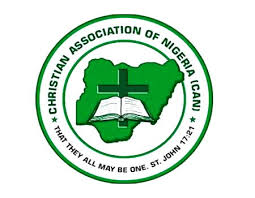The Abia State chapter of the Christian Association of Nigeria (CAN) has categorically denied recent allegations claiming that Governor Alex Otti has imposed a tax on churches within the state. This clarification comes in response to an article published by an online news outlet, Sahara Reporters, which suggested that Abia CAN had urged the governor to halt taxing religious institutions under a state law mandating fees for signage and billboards outside church premises.
In a statement released by the state chairman of CAN, Rev. Ojo Uduma, and the state secretary, Rev. Dr. Francis E. Okere, highlighted that the organization did not authorize any communication or statement regarding the matter. They called for the immediate retraction of the article and demanded a formal apology from Sahara Reporters.
The statement from the Abia CAN leadership read: “We wish to inform the public that the Christian Association of Nigeria, Abia State chapter, did NOT send any letter to Sahara Reporters for publication and has not authorized anyone to make statements on our behalf.”
The controversy began when Sahara Reporters published an article on October 22, 2024, titled “Christian Association of Nigeria kicks as Governor Otti imposes signpost tax on Abia churches.” This article claimed that the state chapter of CAN had expressed discontent with the tax policy. However, the association has since distanced itself from these claims, asserting that no official communication was made regarding the supposed tax.
Abia CAN has set a 72-hour deadline for Sahara Reporters to retract the article and issue an apology. In their statement, they warned, “Failing this, we will have no choice but to instruct our lawyers to pursue legal action for defamation of character against Sahara Reporters.”
The leaders of the Abia chapter also reiterated their commitment to maintaining their integrity, stating, “Abia State CAN disassociates itself from any statements, whether printed or virtual, henceforth.” This assertion highlights their dedication to representing the interests of the Christian community in Abia without external misrepresentation.
The allegations come amid ongoing discussions about the financial pressures faced by religious institutions in Nigeria. Many churches, particularly in regions experiencing economic challenges, have raised concerns about governmental policies that may impose additional financial burdens on them. The purported tax on signage was seen by some as an undue burden on churches already navigating a complex financial landscape.

